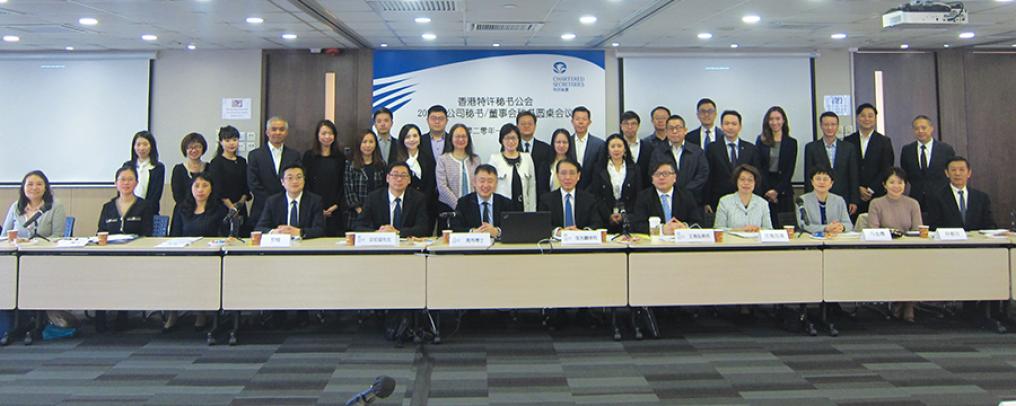Barbara Chiu, Partner, and Nichole Hou, Counsel, King & Wood Mallesons, highlight the implications of a Court of Appeal judgment, recently affirmed by the Court of Final Appeal, regarding the burden and standard of proof required in Market Misconduct Tribunal proceedings.
The Court of Final Appeal has recently reiterated that Market Misconduct Tribunal (MMT) proceedings are inquisitorial in nature and there is no place for the requirement of burden of proof on the Securities and Futures Commission (SFC). In other words, the SFC is not required to ‘prove their case’ in the traditional litigation sense but is only required to present evidence to the MMT to enable the tribunal to form a decision on the matter. This will possibly have implications for the defence strategy adopted by persons under investigation.
This article will take you through the leading authority of Securities and Futures Commission v Cheng Chak Ngok and Another [2018] 4 HKLRD 612, which was subsequently affirmed by the Court of Final Appeal in Cheng Chak Ngok v Securities and Futures Commission [2019] HKCFA 17, demonstrating the abovementioned principle.
The case concerned Mr Cheng, who was accused of insider dealing in the shares of China Gas Holdings Ltd (China Gas). At the material time, Mr Cheng was an Executive Director, Chief Financial Officer and Company Secretary of a company (Cheng’s Employer) listed in the Hong Kong Special Administrative Region of the People’s Republic of China (Hong Kong). On 12 December 2011, Cheng’s Employer and China Petroleum & Chemical Corporation issued a Joint Pre-Conditional Voluntary General Offer (PVGO) announcement regarding their offer to acquire all of the outstanding shares of China Gas at HK$3.5, representing a premium of 25% to the previous closing price of China Gas shares.
The SFC alleged that Mr Cheng, who was aware of the details of the PVGO, purchased China Gas shares via a nominee account between mid-November 2011 and December 2011. The shares were sold shortly after the PVGO announcement and Mr Cheng made a profit of around HK$3 million.
The MMT proceedings
In order to establish insider dealing by Mr Cheng, the MMT had to be satisfied that:
- he was a connected person of China Gas
- he had information which he knew was inside information in relation to China Gas, and
- he had dealt with the shares of China Gas.
In the MMT proceedings, the major issue in dispute was whether Mr Cheng had dealt with the shares of China Gas as there was no such direct evidence against Mr Cheng. Evidence before the MMT showed that the bidding orders were in fact made through the securities account of a Ms Li. The key question was whether the circumstantial evidence was sufficient to draw the inferences that it was actually Mr Cheng who had dealt with the shares. The circumstantial evidence included the fact that:
- Mr Cheng was the only person who had access to the relevant information and the timing of such access corresponded to the timing and quantity of the bid orders
- Mr Cheng was working in the office on the dates when the bid orders were placed via the computer(s) in the office and was away from Hong Kong on the dates when the bid orders were placed exclusively via smartphone
- Mr Cheng was in close association with Ms Li and was involved in her bank accounts, including the subject securities account, and
- Mr Cheng had control over the funds involved in the purchase and disposal of the subject shares.
- Having assessed the evidence before it, the MMT held that it could not be satisfied that on a balance of probabilities the circumstantial evidence was sufficient to prove that Mr Cheng had ‘dealt’ with the shares. The MMT also stated that the burden of proof lay with the SFC and it was for the SFC to prove on a balance of probabilities that Mr Cheng had committed market misconduct.
The Court of Appeal’s approach
The SFC appealed to the Court of Appeal, arguing, among others, that the MMT had wrongly applied the criminal standard of proving beyond reasonable doubt. This mistake was compounded by the MMT imposing a burden of proof on the SFC when none was required.
The Court of Appeal reaffirmed that the MMT proceedings are civil and inquisitorial in nature. The MMT’s function is not to adjudicate between rival claims or positions but to inquire into the question of insider dealing, the standard of proof being on a balance of probabilities.
As regards whether the SFC bore any burden of proof, the Court of Appeal held that in an inquisitorial inquiry by a tribunal, there was no place for the requirement of burden of proof. Section 21 of Schedule 9 of the Securities and Futures Ordinance provides that the SFC, ‘must present to the Tribunal any evidence available to the Commission, including any evidence that the Tribunal requests the presenting officer to present, and make any submissions, that will enable the Tribunal to reach an informed decision as to whether market misconduct has taken place and, if so, the nature of the market misconduct’. The language of that section only went so far as to require the SFC to present evidence to the MMT to enable the MMT to form a decision on the matter. The Court of Appeal held that this requirement does not mean that SFC carries a ‘legal burden’ in the traditional sense.
The Court of Appeal went on to evaluate the evidence of the case, finding that the circumstantial evidence pointed strongly to Mr Cheng as the person who had dealt with the China Gas shares and the MMT had failed to properly evaluate the evidence on a balance of probabilities. It further ordered the matter to be reheard by a differently constituted MMT to determine solely the question of whether Mr Cheng had dealt with the shares.
Decision of the Court of Final Appeal
Mr Cheng sought to appeal further and applied for leave to appeal from the Court of Final Appeal. In dismissing his application, the Court of Final Appeal affirmed the Court of Appeal’s restatement of the principles governing the nature of an inquiry into market misconduct, including the appropriate approach to the burden and standard of proof.
Having failed in his appeal, Mr Cheng’s case was reheard before a differently constituted MMT from 26 to 30 August 2019 and a ruling of the retrial is pending.
Practical implications
This case serves as a good reminder of the inquisitorial nature of MMT proceedings and that the standard of proof is on a balance of probabilities. In the absence of any direct evidence, circumstantial evidence alone could be sufficient for the MMT to find that a person has committed market misconduct.
Further, in defending claims of market misconduct in MMT proceedings, it is important to bear in mind that the SFC does not bear any burden of proof. In light of this latest Court of Final Appeal decision, instead of adopting a defensive strategy of assuming the SFC needs to prove its case, a more proactive defence approach from the outset of the investigation stage and in any subsequent MMT proceedings is called for.
Barbara Chiu, Partner, and Nichole Hou, Counsel
King & Wood Mallesons
Copyright: King & Wood Mallesons



